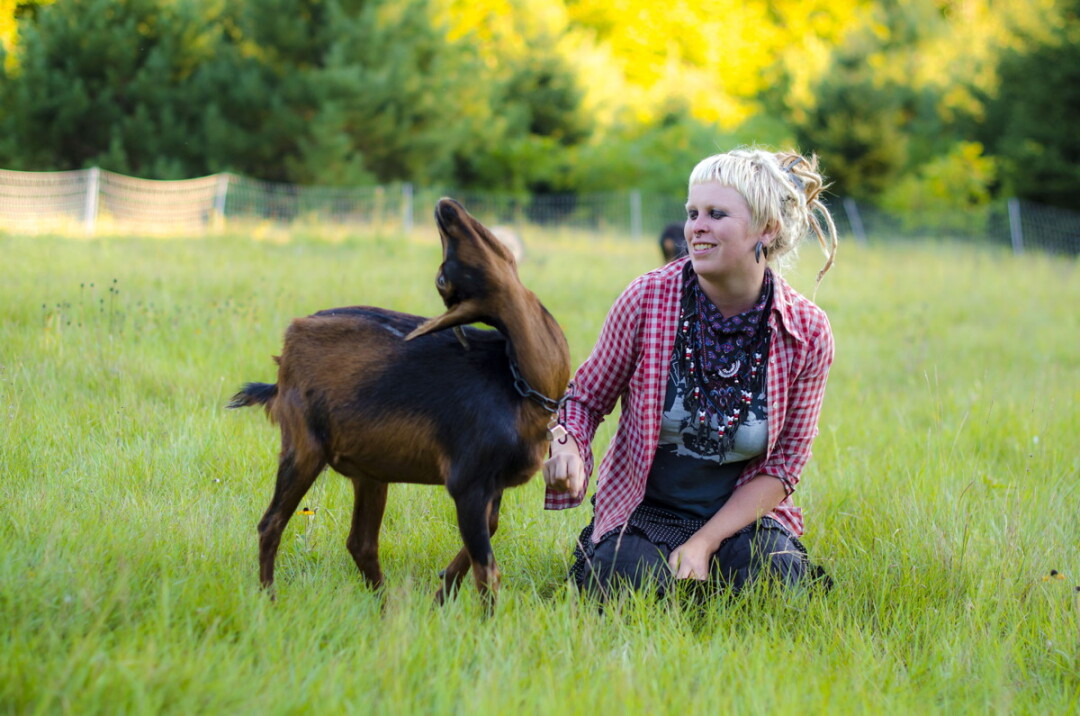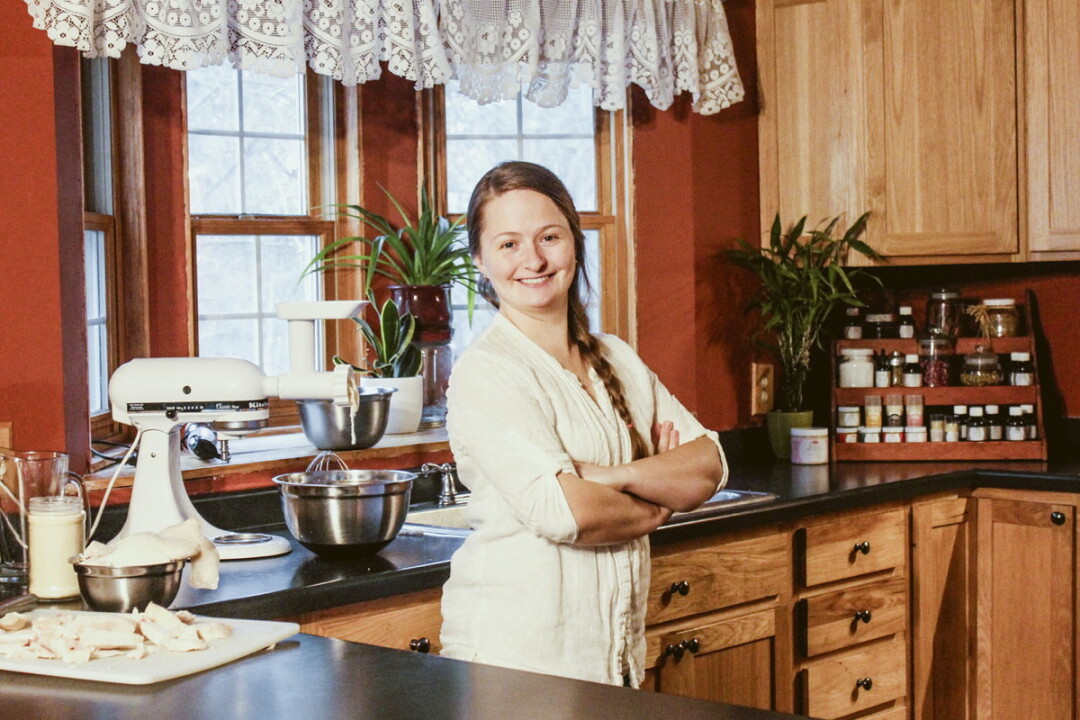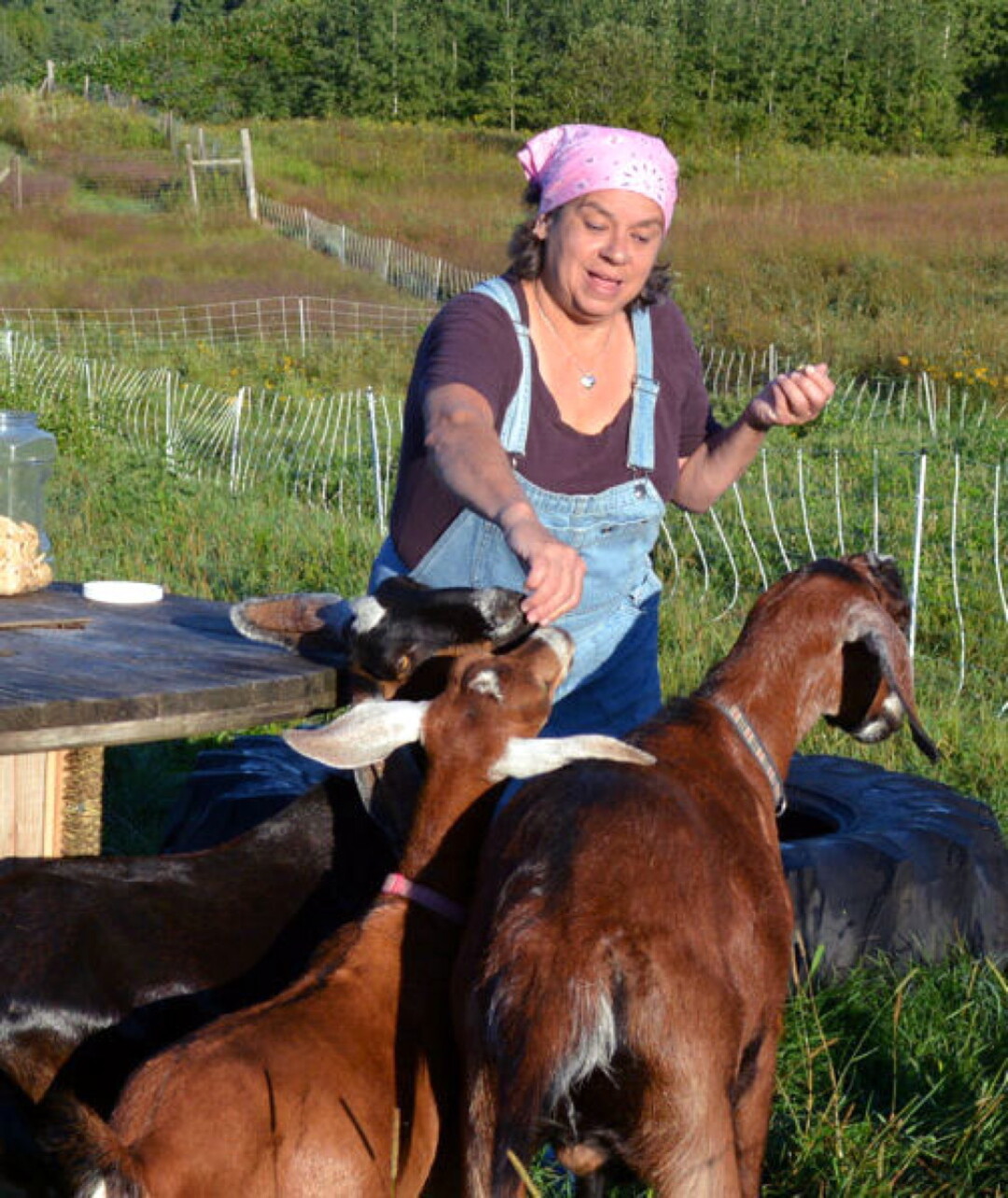Growing From the Ground Up
female-led Dunn County farmsteads produce unique products

In the more remote environs of the Chippewa Valley, out of earshot of recording studios and far off the beaten bike trails, another kind of renaissance is growing. A loosely knit community of gritty entrepreneurs, dedicated to producing retail products from the land they live on, works tirelessly to realize their individual dreams. These trailblazers discover each other and give mutual assistance as they find their way. They learn about soil quality, website design, electric fences, bar codes, livestock diseases, wholesale buying, and long days and nights of hard work. They persevere through triumph and tragedy. And, increasingly, they are women.
I recently interviewed three of these pioneers, people I’d come to know while working as a buyer and manager at the Menomonie Market Food Co-op, where they gained their first retail store foothold. It’s hard when you meet people like this to not sense their undimming dedication, as humble and sometimes weary as they are. You learn about the strength, intelligence and creativity that it takes to see something through from soil to shelf. And you also learn about the ways they are supported and support others in turn.
EB RANCH
EB Ranch is nestled in a valley near Ridgeland so remote that no human sound reaches you as you drive up, except possibly very heavy punk rock blasting from the house, commingling with the braying geese and barking dogs. Although Erin Link, who operates the farm with her partner Bob DK, spent her early years on local farmland, she seems more aesthetically at home at a hardcore dive in Minneapolis.
Indeed, the couple’s do-it-yourself punk ethic was part of what inspired them to turn to a more self-reliant rural lifestyle. This self-reliance extends from creating pasturing and breeding strategies for rare San Clemente Island goats, to learning to make and market soap from the goats’ milk, to building a solar electric system which powers parts of the operation. Part of their goal is to create a sort of managed ecosystem, helping the land and the critically endangered goats thrive together.
They also raise several rare heritage breeds of ducks and turkeys, along with chicken, geese, some mushroom varieties, and the more typical farm vegetable garden, working to maintain biological diversity while feeding themselves. In her spare time, Erin also puts in some hours on a local vegetable farm. The goats, however, are the ranch’s main income source, and are a challenge in themselves, being more feral and shy than standard breeds.
“We are trying to breed them for friendliness, and they could actually be good for other homesteaders, because they’re smaller,” Erin says.
The soap itself comes in several enticing scents (depending on the season) and has been getting rave reviews from tough customers such as tattoo artists and auto mechanics! It’s sold in several stores and farmers markets in the area; check out ebranch.weebly.com for details.

BELOVED ACRES
Meanwhile, to the east near Colfax, another farm-to-retail operation has set up shop. Beloved Acres, home to Veronika Zazovsky and her family, is also a laboratory, working farm, and headquarters for Beloved Sisters body care products. Veronika has been working on Beloved Sisters since 2009 with the help of family and friends. In that time, she’s displayed an almost obsessive level of zeal and skill, belying her self-effacing, friendly demeanor. Her website displays a sweeping variety of dozens of products, each wrapped in a perfect-looking container with labels such as “Beloved Mother,” “Beloved Baby,” and “Beloved Night.”
The original Beloved Body line features an unusual ingredient: beef tallow from Beloved Acres’ own grass-fed cows! A Russian immigrant, Veronika inherited this approach from old family recipes. It’s amazingly effective for soothing and softening skin, and smells only of carefully sourced essential oils. Try the Beloved Hands cream for starters.
In recent years, she’s concocted a Living Vegan line as well, and is now excited about her new Beloved Mother line, which features sea buckthorn oil. As if all this isn’t enough, she spends plenty of spare time managing the Menomonie Farmers Market, where she can also be found selling her products. As she says, “I’m an overachiever, but I’m not trying to beat anyone, just create the best products I can.”
Beloved Sisters’ website – thebelovedsisters.com – features the full range of products and retail locations.

BIFROST FARMS
And back to the goats: Specifically, mini Nubian goats raised by Meg Wittenmyer on Bifrost Farms in Boyceville. Like the EB Ranch team, Meg got started raising goats to become more self-sufficient, and this gradually led to a small body care line of goat milk lotion and pet shampoo, followed by a burgeoning cheese business.
The mini Nubians won Meg over by being “SO CUTE,” as well as having high butterfat content in their milk, which makes them ideal for her cheesemaking.
In keeping with the theme of overworked local entrepreneurs, Meg also runs a kennel and dog-training facility on the farm, with some help from her husband Joel (who works full-time elsewhere). Bifrost is obviously a labor of love, and this love extends to the goats: The farm is “no kill,” meaning that the goats get to live out their years after their milk has run dry. Bifrost’s distinctions include being Animal Welfare Approved, and being the only farmstead goat creamery in western Wisconsin. They plan on interning future farmers beginning next year, however, so that could change!
Bifrost products are available at the Menomonie Market Food Co-op and Just Local Foods in Eau Claire, as well as partner CSAs and farmers markets in Menomonie and Barron seasonally. They’re also talking with chefs at The Informalist in Eau Claire and Sheeley House Saloon in Chippewa Falls, so look for them on the menus there. Visit bifrostfarms.com for more information.
I asked each of my interviewees about being a female farmer and entrepreneur, and they were all unequivocally positive about the support they’ve gotten from other farmers and community members. A few old-timers were a bit doubtful at first about women being capable of such work, but once that confusion was straightened out, they were glad to lend help. In a nice twist illustrating the interconnectedness of farmstead life, I learned that Meg had sold Veronika her goats, who then learned to milk them from Erin! These people understand the importance of giving and taking in today’s small-farm world, and they are optimistic for the future of these small-scale operations. Their message to others looking to get started? Do your research, find the financial and informational help you can, and go for it!






















